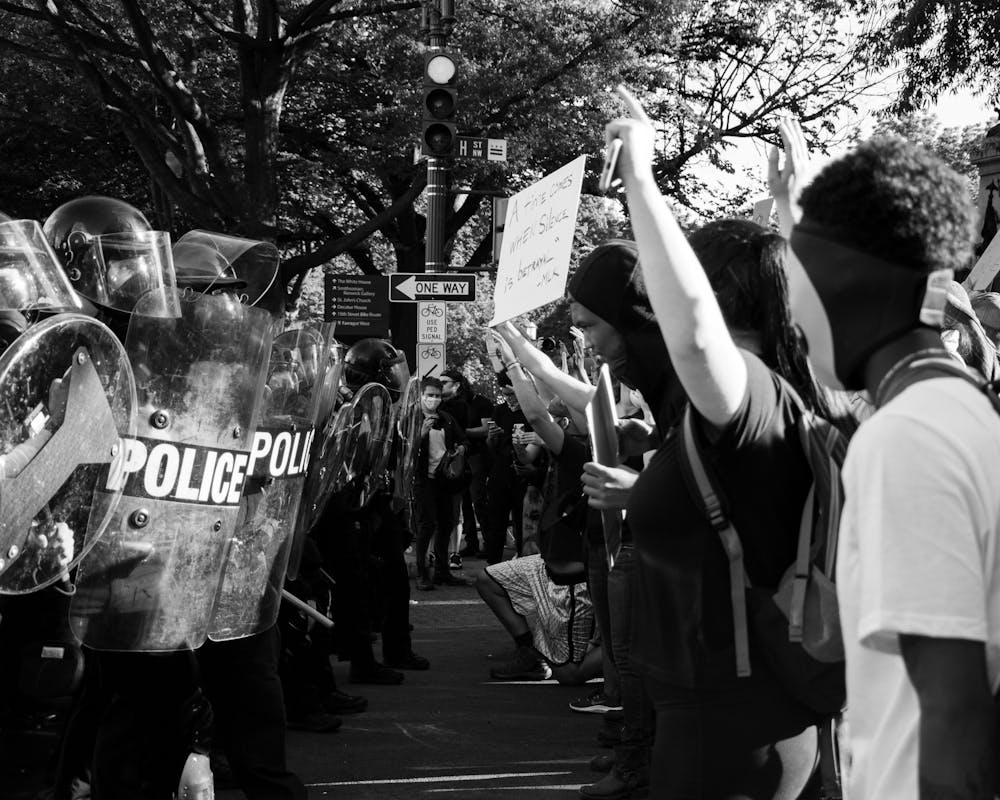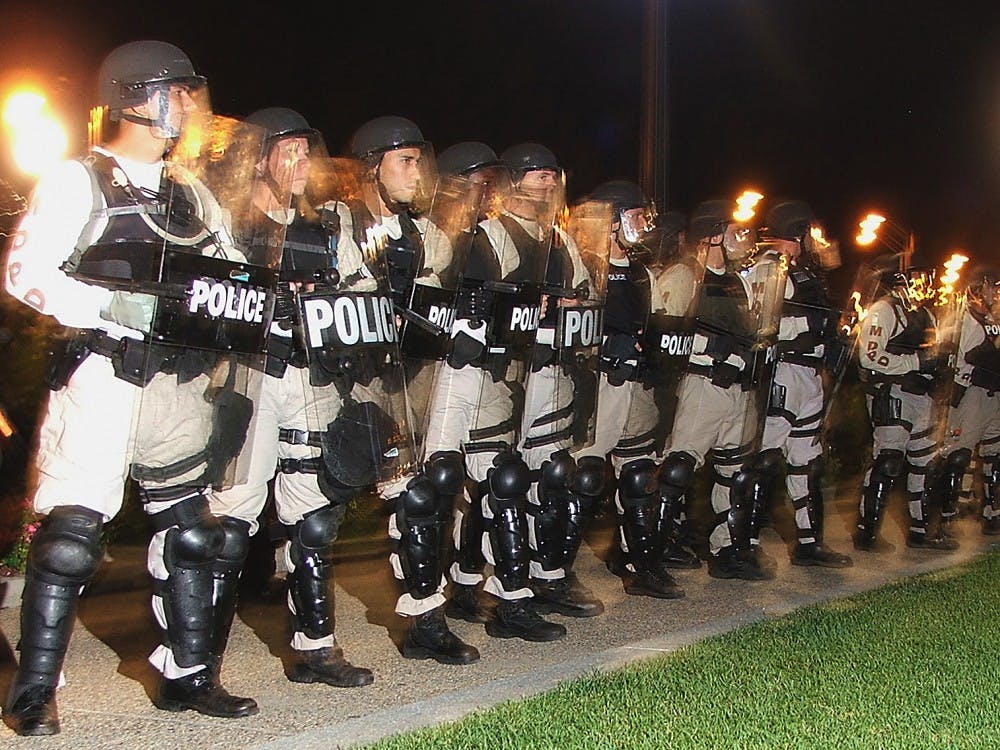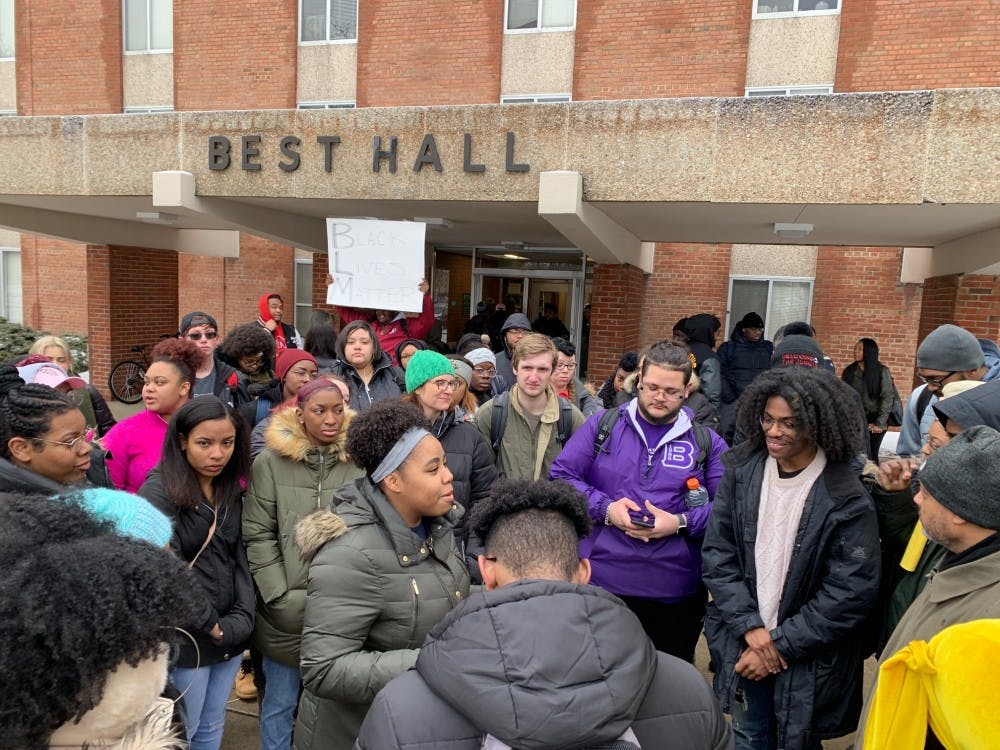The past two weeks have seen collective mourning of George Floyd, collective action in urban, suburban, and rural communities in response, and a surprising level of consensus from Americans on the need for systemic reform in law enforcement.
It is an important time to get something done and to take advantage of this consensus. It is an important time to listen to the calls of activists and explore ways to better our policing.
The most radical of these calls has been to “abolish the police,” which has actually been pledged by a veto-proof majority of the Minneapolis City Council, yet rejected by Major Jacob Frey and Democratic nominee for president Joe Biden. Dissenters typically point to more incremental reforms. But many who embrace the call to defund or abolish the police, including a Minneapolis councilwoman, have pointed to a perceived futility in this brand of reform.
Past reforms of police forces in cities across the United States have had mixed results, as outlined in an episode of the FiveThirtyEight politics podcast, potentially buttressing this claim. However, much of the failures of reform fall on the disproportionate power of police unions even as police chiefs and community leaders vow to implement sweeping changes. This power dynamic is important as city councils, state legislatures, and Congress weigh in on what changes can be made at each level.
To do this, officials need to turn to data on excessive force by the police in their cities, states, and the nation at large to evaluate the scope of the problem. A problem arises when considering that there is no national system for reporting police misconduct. To exacerbate the problem, state agencies are reluctant to release details of police misconduct. This leaves the research up to journalists and activists, which elected officials don’t always take as seriously as nationally collected and verified data.
Further, oversight boards on the local level often have little-to-no enforcement power, allowing repeat offenders of police misconduct to never face real consequences. Even when officers face lawsuits, the money comes from the department and doesn’t impact their operations significantly, allowing departments to justify keeping officers on the force.
We can turn, however, to the data and proposals out there, like Campaign Zero, which provides a thorough outline of meaningful reforms. Among them are reforms which fall short of abolition, including updated training requirements like those which were passed in the Michigan Senate, community oversight, and limiting use-of-force (chokehold bans, comprehensive reporting, etc), among others.

Restrictive Use-of-Force policies have shown to reduce police violence when they are enabled to be passed, according to Campaign Zero.
Previous attempts at reform in Minneapolis have undoubtedly failed. Lack of transparency and accountability on the behalf of police departments and a lack of enforcement power by oversight boards and police chiefs have created a sense of powerlessness by those truly trying to change the system. It may be appropriate for Minneapolis to scrap the MPD and rebuild, possibly developing into the community-based model of Camden, New Jersey. (There is still no consensus on what disbanding the MPD will amount to, or a straightforward estimate on the timeline.)
But while all communities are not obligated to do the same, it is important to continue implementing reform even if it’s just short of what activists are advocating for. Use-of-force limitations, taking on police unions, updating training requirements, and empowering oversight committees and reformists are just a few things that can be done as we enter a new era of consensus on the need for police reform. It cannot be an all-or-nothing approach.
Much of what needs to be done may not require disbanding of forces, but may require disentangling the relationships which enable police officers to escape accountability, like the closeness of prosecutors and the police, the tendency of judges and juries to believe officers when they claim their life was being threatened (even by unarmed civilians), the lack of financial accountability for individual officers in lawsuits addressing excessive force, the stranglehold police unions have on local departments and their capacity for reform, and the lack of a non-threatening presence by officers in communities. It may require intervening in the relationship between the military and police, preventing local forces from becoming over-militarized.
It is up to local departments to evaluate where their needs are, but it is also up to Congress and state legislatures to incentivize reforms, which may complicate the notion of defunding police. Reallocation of funds to rehabilitative structures as opposed to punitive ones is important to consider, but most reforms do require investment. Governmental structures, then, should be smart about itemizing what funds are to be used for in order to make police funding more effective. Any increase in police funding should see a match in preventative services, schools, etc., or specifically go towards more advanced training.
There is much that can be done without resorting to the most “radical” suggestions - notably, “lesser” reforms have been effective in some cities, especially when implemented as a response to public outcry, and these reforms are more likely to pass in a time of consensus. Now is an immensely important time to seek real reform and find consensus with unlikely allies to get there.
We need common sense police reform, and the Left needs to work with allies instead of shooting themselves in the foot because their most radical demands won’t be met everywhere and their vision of a disbanded police force in Minneapolis might not line up with what actually ensues. Stressing accountability on behalf of police departments across the nation, chiefly by taking on police unions, eliminating qualified immunity, and constructing real and powerful oversight bodies, should not be underestimated or laughed at - there’s real potential for these to take hold and make a real difference. “Defund the Police” and related messaging should not detract from that, and I’m praying it doesn’t.






